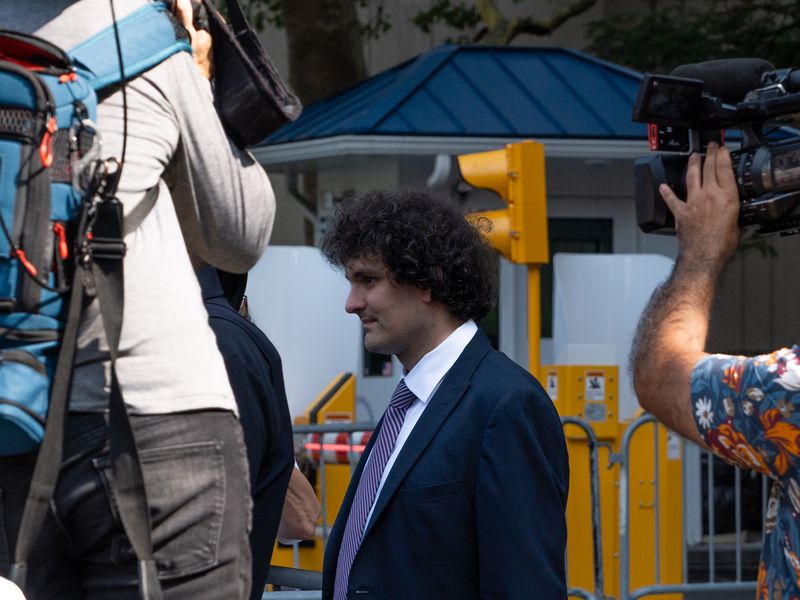Pavel Durov: The Imperfect Free Speech Hero
Over the weekend, Telegram founder Pavel Durov was arrested at a Paris airport and later charged by the Tribunal Judiciaire De Paris with enabling illegal transactions, distributing child abuse material, complicity in the drug trade, and failing to cooperate with law enforcement.
This is clearly a big moment. Here is an enormously powerful social media CEO (Telegram has roughly one billion users) struggling with the very conspicuous long arm of the nation-state. Durov fits a recent pattern of governments re-asserting authority over networks that founders, and many of the rest of us, conceive of as free-speech havens (common spaces) that officials have little right to touch.
Durov’s arrest has generated a lot of conjecture, debate, conspiracy-theorizing and
culture war rhetoric
in the last 48 hours. Durov’s case is a revealing flashpoint in the free speech wars of the modern internet and the larger question of whether we, as digital citizens, can expect public commons where we can speak freely without interference from what are, in effect, censors.
On one side are the free speech advocates, including X (formerly Twitter) boss Elon Musk, who argue that Durov’s case amounts to a crackdown on open discourse. Musk has started a #FreePavel campaign and brought many millions with him. Interestingly, Mark Zuckerberg chose this
exact moment
to highlight how the U.S. leaned on Meta during the COVID pandemic to strip “disinformation,” seemingly showing solidarity with Durov’s struggles in Paris.
Durov has become a hero in the eyes of those who champion an internet free of mediation, including those in cryptocurrency, even if that freedom leads to people using that network for all kinds of morally problematic and even illegal things. But Telegram, which is the channel of choice for nearly everyone in Web3, is not exactly the encrypted nirvana we might want, ideally. As tech journalist Casey Newton
explains
:
“Telegram is often described as an ‘encrypted’ messenger. But as Ben Thompson
explains today
, Telegram is not end-to-end encrypted, as rivals WhatsApp and Signal are. (Its ‘secret chat’ feature is end-to-end encrypted, but it is not enabled on chats by default. The vast majority of chats on Telegram are not secret chats.) That means Telegram can look at the contents of private messages, making it vulnerable to law enforcement requests for that data.”
Durov has often presented Telegram as a “secure messenger,” but outside of its secret chat function, the service is more open to government intrusion than Signal, WhatsApp and iMessage. Telegram is not Bitcoin, where transactions are unstoppable. It’s not a blockchain, which accords privacy in a different way from something like Telegram, which, structurally, is both a free speech haven and a honeypot for intermediaries, whether criminal or governmental.
The beauty of blockchains is we don’t have to debate the motivations and machinations of men like Elon Musk, Pavel Durov, and Mark Zuckerberg. The freedom of expression is baked into the code. The free-speech principles at play in Durov’s case should clearly have the crypto community’s support. But ideally we would have public online commons that are genuinely free from government intrusion and the whims of single men, however well-meaning.
Note: The views expressed in this column are those of the author and do not necessarily reflect those of CoinDesk, Inc. or its owners and affiliates.
Disclosure
Please note that our
privacy policy,
terms of use,
cookies,
and
do not sell my personal information
has been updated
.
CoinDesk is an
award-winning
media outlet that covers the cryptocurrency industry. Its journalists abide by a
strict set of editorial policies.
In November 2023
, CoinDesk was acquired
by the Bullish group, owner of
Bullish,
a regulated, digital assets exchange. The Bullish group is majority-owned by
Block.one; both companies have
interests
in a variety of blockchain and digital asset businesses and significant holdings of digital assets, including bitcoin.
CoinDesk operates as an independent subsidiary with an editorial committee to protect journalistic independence. CoinDesk employees, including journalists, may receive options in the Bullish group as part of their compensation.
:format(jpg)/s3.amazonaws.com/arc-authors/coindesk/e82064d4-cc50-446d-baa9-58525961f4ad.PNG)
Ben Schiller is CoinDesk’s managing editor for features and opinion. Previously, he was editor-in-chief at BREAKER Magazine and a staff writer at Fast Company. He holds some ETH, BTC and LINK.
Follow @btschiller on Twitter









